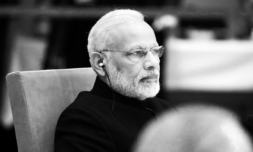Companies looking to create long-lasting connections with younger consumers must respect personal data, provide quick, authentic services, and be transparent about their business operations.
If you’re a business looking to tap into the ever growing market of young Generation Z shoppers, then you’re probably wondering how to go about doing so.
By the end of this year young adults and teens will make up over 40% of all American consumers. Avoiding such a huge, rapidly emerging societal bracket would mean risking longevity, profit, and relevancy, but actually gaining the loyalty of this demographic is harder than you may initially think.
When it comes to Gen Z, clarity, openness, pricing, and speed are all essential factors in determining whether they’ll return to use your services in the future. It’s not enough to give a great or cheap product– young people need to be certain that your business is environmentally conscious, ethically sound, and in line with their own values.
Here’s our rundown of all the factors that play into Gen Z’s ideas of brand loyalty, many of which are unique to their demographic.
Be upfront with customers about how and why you create your product
Companies with a genuine purpose and an eagerness to be transparent about their operations will be significantly more attractive to Gen Z than mysterious or allusive ones. Growing up in a capitalist society, we’re accustomed to seeing news stories about shady business practices, poor worker conditions and pay, and sky-high pollution rates. We’re assuming your company is evil from the get-go – unless you can prove it to us otherwise.
Businesses that have lengthy, in-depth explanations as to how they create products and why they do what they do will very likely have an edge over the competition when it comes to Gen Z. When we give loyalty to a brand, we want to buy into an idea, a movement, or a feeling that gives us a unique experience. Many of us are not just looking for a quick fix or easy solution; we value brands that give back, that are clear-cut about how they treat their workers, and ultimately demonstrate that they’re not just out to reap the benefits of our capitalist economy.
According to a 2017 study by Cone Communications, 87% of Gen Z shoppers stated that they’d buy a product if a company advocated for a cause they cared about. 75% also said they’d flat out refuse to buy a product or service if a company demonstrated it had opposing views. In other words, company purpose and transparency is a huge deal – and this is only set to grow with younger consumers.
Gen Z is all about the environment
I’m sure you saw this one coming.
Any business that’s willing to embrace more environmentally friendly practices will be far more likely to entice Gen Z into brand loyalty for the long haul. Forbes highlights that a majority of Gen Z consumers are willing to pay more for sustainable or ethical products compared to traditional ones, and if a company goes above and beyond to show how its products are made then that’s another point in its favour.
Nearly every young person cares about the state of our environment. We’ve seen the effects of climate change begin to play out in real time over the past few years. Many teens have grown up with regular wildfires, increased environmental disasters, and constant scientific reports that emphasise how bad things have gotten.
Gen Z are very, very mindful of their carbon footprint. Products that don’t use plastic packaging, from companies that really stress how environmentally conscious they are, will be embraced much easier with younger consumers. We don’t want to feel guilty when we’re buying a service or item, and it’s something we think about constantly.




















